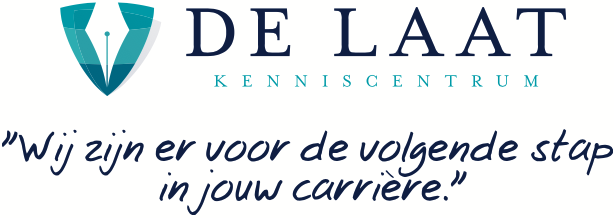Dutch language course
Do you aspire to live, work, study, or enjoy leisure time in The Netherlands? At De Laat Kenniscentrum, our Dutch language courses offer an immersive and practical introduction to the Dutch language, tailored to your individual needs. Also if you have lived here for a while, we offer suitable courses. Dive into our language programs that span from beginner (A1) to near-native fluency (C2).
Read the shortened and simplified version of this text here
Lees deze tekst hier in het Nederlands
Why choose our Dutch language course?
- Practical Approach: Our courses emphasize real-world situations, focusing on daily life, work, studies, and recreation.
- Intensive Learning: Within just a few lessons, depending on your chosen level, we guide you to achieve language proficiency levels such as A1, A2, or even B1 and B2.
- Small Class Advantage: We offer intimate class sizes, ensuring rapid learning as you receive personalized attention from a language expert to refine your speaking and writing abilities.
- Online Learning: Enhance your classroom experience with our online curriculum. This blend of classroom and digital learning ensures rapid language acquisition, boosting your confidence.
- Customized Levels: From foundational levels like A1 and A2 to advanced levels up to C2, we cater to all learning needs – whether for blue-collar jobs, vocational education, top-tier managerial roles, higher education, or university degrees.
Who can enroll?
Anyone with a keen interest in mastering the Dutch language! No prior knowledge of Dutch is required, nor is there a specific educational prerequisite. This course is also suitable for those undergoing compulsory integration.
What does the Dutch language course look like starting from level A1?
Depending on your specific needs, various options are available. We adhere to the Common European Framework of Reference, known in Dutch as the "Europees Referentiekader". The following levels are distinguished. For the state exam, there are two programs that prepare you for levels A2-B1 and A2-B2.
Levels A1 to C2
End Level A - Basic User
A1
At A1 proficiency, you can comprehend and use familiar everyday expressions and foundational phrases tailored to specific needs. You can introduce yourself and pose and respond to questions about personal details such as where you live, people you know, and things you own. You can interact in a basic manner, assuming the other party speaks slowly, clearly, and is willing to assist.
A2
With the Dutch language course at A2, you can understand sentences and commonly used expressions related to immediate relevancy (e.g., personal details, family, shopping, local geography, employment). You can communicate about straightforward daily tasks and can describe aspects of your background, immediate surroundings, and needs.
End Level B - Independent User
B1
Mastering Dutch at the B1 level means you can understand the main points from clear standard texts about familiar matters that often arise in work, school, and leisure. You can produce simple continuous texts on topics that are familiar or of personal interest. You can narrate experiences and events, dreams, hopes, ambitions, and provide reasons and explanations for opinions and plans.
B2
At B2 proficiency, you can grasp the central idea of intricate texts on both concrete and abstract topics, including technical discussions in your field. You can interact so fluidly and spontaneously that regular conversations with native speakers are effortless for both parties. You can produce clear and detailed texts on a wide range of subjects and can elaborate on current issues, outlining the pros and cons of different solutions.
End Level C - Proficient User
Our Dutch C1 and C2 courses are offered as customized courses. The price depends on the level and the number of lessons required. Please contact us for a tailored quote.
C1
As a proficient user at the C1 level in Dutch, you can understand a wide range of demanding, long texts, and recognize their implicit meanings. You can express yourself fluidly and spontaneously without noticeably searching for phrases. You're adept at using language flexibly and effectively for social, academic, and professional purposes. You can produce clear, well-structured, detailed texts on complex subjects, utilizing organizational structures and connectors.
C2
Mastering Dutch at the highest C2 level means you can effortlessly understand almost everything you hear or read. You can assimilate information from various spoken and written sources, constructing a cohesive summary. Even though Dutch is your second language, you can express yourself spontaneously, fluently, and precisely, differentiating finer shades of meaning even in more complex situations. This represents the linguistic proficiency of a highly-educated near-native speaker.
Examinations:
Conclude your Dutch language course with an official state examination. Two programs are available:
- Program 1 (A2-B1): Suitable for those seeking vocational roles or educational courses.
- Program 2 (A2-B2): Ideal for individuals targeting roles or education at university or higher education level.
Each program assesses reading, listening, speaking, and writing skills.
Study commitment and program:
Expect approximately six hours of study per week. The course provides 8 sessions with the instructor, along with an in-depth online learning program.
The lessons are scheduled by mutual agreement.
Certification:
Upon successful completion, you'll earn an NT2 diploma, showcasing your proficiency in the Dutch language. All NT2 exams are conducted by DUO on behalf of the College for Testing and Examinations (CvTE). For more details and sample exams, please refer to the CvTE website.
Prices:
Course price A1/A2
Starting from 999,- euros (exempt from VAT)
This is a customized price based on 1 person.
From B1: customized price. Please contact us for a tailored quote.
Interested in our Dutch language course?
Would you like to enroll immediately? You can do so on this page. Need assistance with this? Feel free to send us an email at info@delaatkenniscentrum.nl or call us at 040-2485582 and we'll help you right away. Embark on your Dutch language journey with us and integrate seamlessly into the Dutch community!
